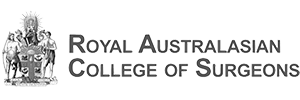Pathology
Do I need a biopsy to diagnose sarcoma?
Biopsy is an important part of work up for suspected sarcomas, the tissues that are removed during biopsy allow the doctor to make a definite diagnosis. A physical exam, patient history, and imaging studies might suggest that a patient has a certain subtype of sarcoma, but that diagnosis can only be made after a pathologist examines the tumour's cells.
How is the biopsy performed?
Tissue samples can be obtained through a needle biopsy (Core biopsy) or through open surgical methods. Most soft tissue sarcomas are diagnosed using a needle biopsy. Needle biopsies are frequently performed by radiologists using CT or ultrasound guidance.
Sometimes a surgical biopsy is necessary because it allows for the removal of more tissue to achieve a diagnosis. This type of biopsy involves making an incision in the skin and obtaining some pieces of the tumour for evaluation. It may be performed under local or general anaesthesia depending on the location of the tumour.
Does the tumour get examined after surgical removal?
A pathologist is a doctor who specialises in diagnosing diseases by examining tissue removed from the body. The tumour specimen from your operation is examined in detail by the pathologist who then prepares a pathology report.
The pathology report is usually written in a highly technical medical language that may be difficult for the patient to understand. We provide a copy of pathology reports after we have explained and discussed the report’s contents.
What will the pathology report show?
- Gross description: The pathologist describes the tissue sample without using a microscope. They record its size, shape, colour, and weight.
- Microscopic description: The pathologist slices the tissue into thin layers, puts them on slides, stains them, and takes a detailed look with a microscope. The pathologist notes what the cancer cells look like and whether they’ve spread into nearby tissue. This section of your report has a number of details that can include:
- Diagnosis: The pathologist will confirm the type of tumour that you have.
- Grade: The pathologist compares the cancer cells to healthy cells. A tumours grade reflects how likely it is to grow and spread. Tumours are graded from 1 to 3, with 3 being the most aggressive grade.
- Tumour margin: When the tumour is removed, the surgeon aims to take extra surrounding normal tissue. This is called the margin. It is not always possible to determine margins during the operation as some tumours spread as individual cells away from the main tumour mass. The pathologist examines these margins in the specimen to determine if cancer cells extend to the edges. If this occurs it is called a positive margin and you may require further surgery or treatment.
Can my tumour be used for research purposes?
At the Sydney Sarcoma Centre, patients who have surgery may also choose to donate parts of the tumour that are not needed for diagnostic tests to be used to further cancer research. Prior to your procedure you will have the opportunity to discuss this with your doctor. Should you agree to participate, a small amount of tumour is taken from the specimen (after it has been processed) and stored for future research purposes. This research will not benefit you directly but may benefit others who have a similar condition in the future.
What is molecular testing of pathology specimens?
Your doctor may recommend additional molecular testing on the tumour sample to look for changes in specific genes and proteins. Some molecular tests can be done in your local hospital laboratory. For other tests, the sample may need to be sent to an independent laboratory for analysis. These tests may help doctors determine your treatment options.
Molecular testing may allow for a “personalized” approach in respect to the chemotherapy required and is an area of increasing interest and scientific focus.



